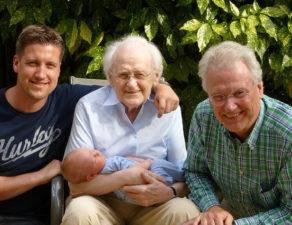At some point, most people experience that enlightening moment when they realize there is a risk of losing their assets if they fall ill and require long-term care. Some will contact an elder law attorney and receive sound advice; others will contact their friends and relatives, who after all, usually know more than most attorneys and are willing to share their knowledge for FREE!
Usually, the conversation turns to the house and the typical pearl of wisdom is to get the house out of their name. Haphazardly, a phone call is placed to a local attorney, who is usually not an elder law attorney, to transfer the house to the children. This is a mistake. Interestingly, one of the biggest fears clients have is losing control over their assets. However, when you make an outright transfer of your house to your children, you lose TOTAL control. When you make an outright transfer of your house to your children, there are unforeseen pitfalls.
For instance, since you are no longer the owner of the house, you will not be entitled to the STAR exemption or to deduct the real estate taxes paid on the house, if you continue to pay them. Another concern is the disability or death of your child. Since the house is now owned by that child, it could render them ineligible for Medicaid or SSI benefits. Upon death, the house will be part of that deceased child’s estate and if the beneficiary of the estate is a spouse, that spouse is now the owner of the house you live in.
Often overlooked are the creditor issues. If your child has debts or judgments, they may become liens on the property. One of the biggest creditors of a child is a divorcee spouse. If a divorce proceeding is commenced, it is possible that the house could become the subject of an equitable distribution award. From a tax perspective, there are adverse capital gains consequences. To illustrate, assume you purchased the house for $150,000 and made $100,000 of capital improvements. Your cost basis is $250,000. If you sell the house while you own it for $750,000, there would be a $500,000 capital gain but the tax law allows you to exclude $500,000 of capital gain if you are married. Thus, there would be no capital gain.
To the contrary, when you make an outright transfer of the house, your children’s basis is the same as your basis. This means that their basis is the same $250,000. Unfortunately, they are likely not entitled to the same capital gains exclusion, so if they sold the house for the same $750,000, they would recognize a $500,000 capital gain and pay taxes on that amount.
An outdated planning technique in lieu of an outright transfer is a transfer with a retained life estate. This is where you transfer the house to the children and retain the right to use and occupy the residence until your death. However, this structure also has adverse tax consequences and in light of changed Medicaid rules, such as the 5-year look-back period, cannot be justified in comparison to a Medicaid Trust.
A Medicaid Trust is the proper vehicle for protecting your house. You can read more about the benefits of a Medicaid Trust at www.plantodayfortomorrow.com. The assistance of competent counsel practicing in the area of elder law is imperative. It is important to work with a seasoned elder law attorney with Medicaid Trust experience. You may also phone us at our Rye, NY Office at 914-925-1010 or our Yorktown Heights Office at 914-245-7403 or complete our online Contact Form
Wishing all of our clients, visitors and others a joyous and wonderful Happy Holidays and a Happy New Year!









